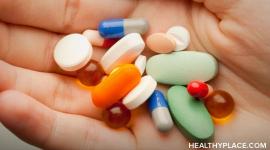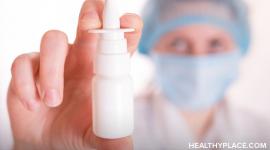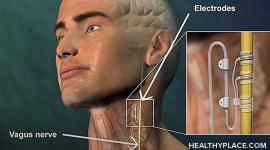What Is Treatment-Resistant Depression? Symptoms, Causes, Treatment

Treatment-resistant depression (TRD) is a chronic and disabling condition that affects around a third of patients being treated for major depressive disorder (MDD) in the U.S. Although depression in all its forms can be debilitating, those who don't respond to conventional treatments have been found to carry a higher suicide risk than those who do respond to depression treatment. Here's how to tell if you have treatment-resistant depression and what you can do about it.
What Is Treatment-Resistant Depression: Do I Have It?
You may have treatment-resistant depression if you have been treated for depression but your symptoms haven't improved after six weeks or longer. Conventional treatments include antidepressant medications taken by mouth (such as SSRIs, SNRIs or MAOIs), as well as psychological counseling. In cases of mild to moderate depression, your doctor may recommend a lifestyle change to ease your symptoms, such as changing your diet, socializing more or doing exercise.
So, what exactly is treatment-resistant depression? Although there is no fixed definition of TRD, U.S. databases typically define treatment-resistant depression as the "failure of two medications as evidenced by their replacement or supplementation by other medications." In other words, if you have tried two antidepressant medications without success, your doctor may diagnose you with treatment-resistant depression and help you explore other options.
The symptoms of TRD are the same as the symptoms of major depressive disorder, except they do not respond to treatment. According to the Diagnostic and Statistical Manual of Mental Disorders (DSM–5), these include:
- Persistent sad or “empty” mood
- Prolonged feelings of hopelessness or pessimism
- Feelings of guilt and worthlessness
- Loss of interest in once-enjoyable activities, including sex
- Changes in appetite accompanied by weight loss or gain
- Restlessness and/or irritability
- Difficulty concentrating, remembering things or making decisions
- Loss of energy
- Changes to sleep habits, including insomnia, early-morning waking or oversleeping
Of course, suicidal thoughts and ideations can occur with all forms of depression. If you have thoughts about harming yourself, you can call the National Suicide Prevention Lifeline at 1-800-273-8255, 24 hours a day, 7 days a week.
What Are the Causes of Treatment-Resistant Depression?
No one knows exactly what causes treatment-resistant depression. It may be a mix of different factors, many of which are beyond your control.
The causes of treatment-resistant depression might include:
- Not taking medicines correctly: For example, skipping doses or not staying on a treatment regimen for a long enough period of time. Alternatively, you may need a higher dose than what was initially prescribed.
- Drug interactions with other medications: You should talk to your doctor if you think this is the case.
- Your genetics: You may be genetically predisposed to major depressive disorder, or your DNA could make certain medicines less effective. Researchers have begun to look into the link between treatment-resistant depression and genetics.
- Other health factors: Depression can be caused or worsened by existing health issues, such as thyroid problems, cancer or heart disease. It's important to get tested for underlying conditions so that you can seek the appropriate treatment.
- Misdiagnosis: Some people think they have treatment-resistant depression, but their symptoms are a result of another condition like bipolar disorder, anxiety or a substance-induced mood disorder.
Treatment of Treatment-Resistant Depression
If conventional treatments haven't worked for you, don't give up. Treatment-resistant depression may not be easily treatable, but you still have treatment options for TRD. You may need to try other medications, attend psychotherapy, go to support groups or ask your doctor about neurostimulation treatments like electroconvulsive therapy (ECT) or vagus nerve stimulation (VNS). The FDA has also approved a new nasal spray called esketamine (Spravato) for treatment-resistant depression, which can be taken alongside oral antidepressants under supervision from your doctor.
APA Reference
Smith, E.
(2022, January 4). What Is Treatment-Resistant Depression? Symptoms, Causes, Treatment, HealthyPlace. Retrieved
on 2025, November 22 from https://www.healthyplace.com/depression/depression-treatment/what-is-treatment-resistant-depression-symptoms-causes-treatment


